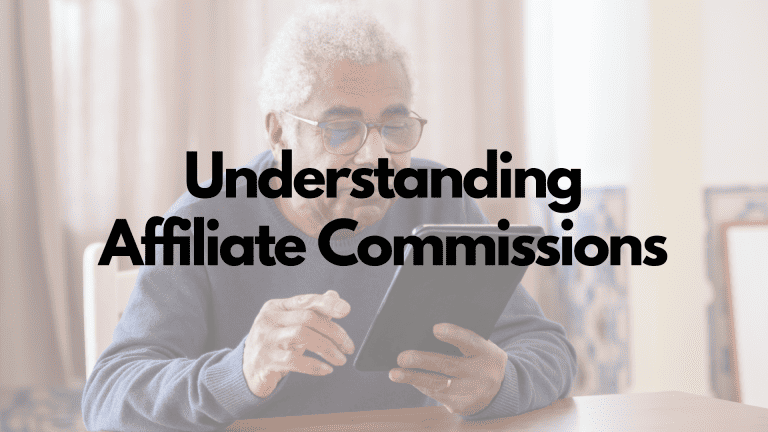
In the world of affiliate marketing, establishing a robust online presence is paramount, and SEO for affiliate marketing acts as the catalyst for this endeavour.
Search engines are the go-to resource for consumers seeking information, products, or services.
By strategically aligning affiliate content with SEO best practices, marketers can elevate their visibility on search engine results pages (SERPs), directing organic traffic to their affiliate links.
This interconnected approach not only boosts brand exposure but also lays the groundwork for sustainable, long-term success.
As search engines evolve, optimizing for relevant keywords, creating high-quality content, and building authoritative backlinks become indispensable strategies for affiliates looking to stay ahead in the competitive digital landscape.
Organic traffic, derived from SEO efforts, holds immense potential for affiliate marketers.
Unlike paid advertising, organic traffic is not only cost-effective but also tends to attract a more targeted audience genuinely interested in the niche or product promoted.
As affiliates invest time in optimizing their content for search engines, the resulting organic traffic serves as a pre-qualified audience with a higher likelihood of converting into customers.
Furthermore, the trust and credibility associated with organic search results can significantly enhance the conversion rates of affiliate links.
As consumers increasingly prioritize authenticity and value, affiliates leveraging SEO can build relationships with their audience, fostering trust that translates into higher conversion rates and increased affiliate revenue.
The Basics of SEO for Affiliates

Search Engine Optimization (SEO) is a multifaceted discipline aimed at enhancing a website's visibility and relevance in search engine results.
At its core, SEO involves a strategic combination of on-page and off-page techniques.
On-page SEO focuses on optimizing content, meta tags, and other elements within the website itself, ensuring that search engines can easily understand and index the content.
Off-page SEO, on the other hand, involves building a website's authority through quality backlinks and mentions from reputable sources.
Keyword research, a fundamental aspect of SEO, involves identifying and strategically incorporating relevant search terms into content to align with what users are actively searching for.
The significance of SEO for affiliate marketing cannot be overstated.
In a digital landscape saturated with information, appearing prominently in search engine results is imperative for capturing the attention of potential customers.
SEO acts as a gateway to organic traffic, providing affiliates with a sustainable and cost-effective means of reaching their target audience.
By aligning content with SEO best practices, affiliates not only enhance their website's visibility but also establish credibility and trust with both users and search engines.
This trust is particularly crucial in affiliate marketing, where consumers are more likely to engage with recommendations from sources they perceive as reliable.
Additionally, as search engines continually refine their algorithms, staying abreast of SEO trends and adapting strategies accordingly is key for affiliates seeking to maintain a competitive edge and maximize their online impact.
Keyword Research: The Foundation

Keywords serve as the bridge between what users are searching for and the content affiliates provide.
Choosing the right keywords involves understanding the intent behind users' searches and aligning them with the affiliate's niche or product.
By honing in on relevant keywords, affiliates increase the likelihood of their content appearing in search results when users are actively seeking information or solutions related to the affiliate's offerings.
This strategic alignment enhances visibility and ensures that the organic traffic generated is more likely to convert into valuable leads or customers.
Utilizing advanced tools is crucial for affiliates aiming to stay ahead of the competition.
Tools like Ahrefs, SEMrush, Ubersuggest, and SeoDity offer a comprehensive suite of features for keyword discovery.
These tools provide valuable insights into keyword volume, competition, and trends, allowing affiliates to make informed decisions about the keywords they target.
Ahrefs and SEMrush, for instance, offer competitor analysis, backlink tracking, and keyword difficulty scores.
Ubersuggest is renowned for its user-friendly interface and extensive keyword suggestions, while SeoDity focuses on providing actionable insights for improving on-page SEO.
Incorporating these tools into the affiliate marketing toolkit empowers marketers to refine their keyword strategies, identify untapped opportunities, and optimize content for maximum impact.
In addition to targeting broader keywords, affiliates can unlock hidden potential by delving into long-tail keywords, which are more specific and usually longer phrases.
These terms may have lower search volumes, but they often indicate a more intent-driven audience.
Long-tail keywords are particularly valuable in affiliate marketing, allowing marketers to cater to niche audiences with specific needs or preferences.
Tools like Ahrefs and Ubersuggest can aid in identifying long-tail keywords by suggesting related phrases and highlighting their search volumes.
By incorporating these precise and targeted terms into their content, affiliates can attract a highly relevant audience, fostering a higher likelihood of conversion and establishing authority within their niche.
On-Page SEO Techniques
Crafting SEO-friendly titles and meta descriptions is a fundamental aspect of on-page SEO that significantly influences a webpage's performance in search results.
Titles and meta descriptions serve as a concise preview of the content, offering both users and search engines insights into the page's relevance.
Incorporating target keywords naturally into titles and meta descriptions not only helps in attracting the right audience but also improves the likelihood of higher search engine rankings.
Additionally, creating compelling and informative meta descriptions can increase click-through rates, driving more organic traffic to the affiliate's site.
Striking a balance between optimization for search engines and providing valuable information for users is key to the success of these on-page elements.
The backbone of success lies in the creation of high-quality, original content.
Search engines prioritize content that adds value to users, and affiliates that consistently produce relevant, insightful, and unique content are more likely to secure higher rankings.
Quality content not only attracts and engages visitors but also encourages natural backlinks from other reputable websites, boosting the site's authority.
Originality is equally crucial, as duplicate content can result in penalties from search engines.
By investing time and effort into creating content that addresses the needs and interests of your target audience, affiliates not only enhance their on-page SEO but also build a foundation for long-term success in the competitive digital landscape.
Effective on-page SEO extends beyond textual content and includes proper utilization of headers, image alt tags, and internal linking.
Headers (H1, H2, etc.) not only structure content for better readability but also provide search engines with contextual information about the page's content hierarchy.
Image alt tags contribute to accessibility and provide search engines with information about the images, potentially improving visibility in image search results.
Additionally, strategic internal linking within content helps search engines understand the relationships between different pages on the site, enhancing overall site structure and authority.
Building Quality Backlinks
Backlinks are a cornerstone of SEO, playing a pivotal role in determining a website's authority and credibility in the eyes of search engines.
Search engines, such as Google, view backlinks as a vote of confidence from one website to another.
The rationale is that if other reputable sites are linking to a particular page, it must contain valuable and trustworthy information.
The quantity and, more importantly, the quality of backlinks directly impact a site's search engine rankings.
High-quality backlinks from authoritative sources signal to search engines that the content is relevant and reliable, contributing to improved visibility in search results.
Conversely, a lack of quality backlinks can hinder a site's SEO performance, as search engines may perceive it as less trustworthy or relevant within its niche.
The acquisition of quality backlinks requires deliberate strategies, and a diverse approach is often the most effective.
Guest posting on reputable websites within the same industry or niche is a widely used tactic.
By contributing valuable content, affiliates can secure a backlink in return, reaching a broader audience while boosting their site's authority.
Outreach, where affiliates reach out to other websites within their industry to propose content collaborations or seek link placements, is another effective strategy.
Additionally, creating link-worthy content, such as infographics, guides, or research studies, can naturally attract backlinks from other websites seeking valuable resources.
Collaborating with influencers and industry thought leaders can also result in authoritative backlinks.
A combination of these strategies ensures a well-rounded approach to building a diverse and impactful backlink profile.
While backlinks are crucial, it's imperative to pursue them ethically and avoid “black hat” techniques that can lead to severe consequences.
Unscrupulous tactics like buying links, engaging in link farms, or using automated link-building tools may provide short-term gains but can result in penalties from search engines, including Google.
These penalties can lead to a significant drop in search rankings or even removal from search results altogether.
Affiliates need to adhere to Google's Webmaster Guidelines and focus on sustainable, ethical link-building practices.
Understanding the risks associated with manipulative tactics and prioritizing the creation of valuable, shareable content helps affiliates build a backlink profile that stands the test of time, contributing to long-term SEO success.
Optimizing Affiliate Links
Link cloaking tools, such as the Pretty Links WordPress plugin, play a crucial role in optimizing affiliate links.
These tools allow affiliates to create clean, branded, and user-friendly URLs while concealing the often complex and lengthy affiliate tracking parameters.
The use of link cloaking not only improves the aesthetics of the link but also enhances the trust and click-through rates from users.
By customizing affiliate links with these tools, affiliates can create memorable and trustworthy URLs that are more likely to be clicked by their audience.
Additionally, these tools often provide valuable tracking features, allowing affiliates to monitor the performance of their links and make data-driven decisions to optimize their marketing strategies.
Maintaining a delicate balance between user experience and affiliate link placement is essential for successful affiliate marketing.
Placing affiliate links strategically within content ensures that they are visible and accessible to users without disrupting the overall flow and quality of the content.
Integrating links seamlessly into relevant, value-added content enhances user experience and increases the likelihood of users clicking on the affiliate links.
However, it's crucial to avoid excessive or intrusive placement, as this can lead to a negative user experience and potentially harm the credibility of the affiliate.
The use of nofollow tags for affiliate links is a best practice that helps maintain a healthy link profile.
Affiliate links are often viewed by search engines as commercial, and using nofollow tags signals to search engines that the link should not pass authority from the affiliate site to the linked merchant site.
This approach is crucial for adhering to search engine guidelines and preventing potential penalties.
While affiliate links are essential for revenue generation, utilizing nofollow tags ensures that the affiliate's site retains its authority and integrity.
By implementing nofollow tags strategically, affiliates can strike a balance between promoting affiliate products and maintaining a website that aligns with search engine best practices, contributing to a sustainable and effective online presence.
Mobile Optimization for Affiliates
The pervasive use of smartphones has led to a significant rise in mobile search, fundamentally altering the landscape of digital marketing, including affiliate marketing.
More users now access the internet and conduct searches through their mobile devices, making it imperative for affiliates to optimize their strategies for mobile platforms.
This shift in user behaviour has profound implications for affiliate marketers, as the mobile experience becomes a crucial factor in the success of their campaigns.
Affiliates need to adapt their content, websites, and promotional methods to cater to the unique preferences and constraints of mobile users.
Mobile optimization for affiliates involves two critical elements: responsive design and fast loading speeds.
Responsive design ensures that a website adapts seamlessly to different screen sizes and resolutions, providing a consistent and user-friendly experience across various devices, including smartphones and tablets.
With attention spans dwindling and mobile users expecting instantaneous results, fast loading speeds are paramount.
Slow-loading pages can result in high bounce rates, negatively impacting user experience and search engine rankings.
Affiliates need to prioritize optimization techniques such as image compression, browser caching, and minimizing unnecessary scripts to ensure their mobile pages load quickly and efficiently.
Affiliates can leverage various tools to assess the mobile-friendliness of their websites.
Google PageSpeed Insights offers detailed reports on a site's performance, highlighting areas for improvement in terms of mobile loading speed.
Additionally, tools like GTmetrix and Pingdom can provide in-depth analyses of a site's mobile performance, including specific recommendations for enhancement.
By regularly utilizing these tools, affiliates can stay proactive in maintaining a mobile-friendly online presence, ensuring that their content is accessible and engaging for users across a diverse range of devices.
Leveraging SEO Analytics
One of the cornerstones of effective SEO for affiliates is the continuous monitoring of organic traffic, and tools like Google Analytics (or Fathom for the privacy-aware) are indispensable for this purpose.
Google Analytics provides a comprehensive overview of website performance, allowing affiliates to track the sources, behaviours, and demographics of their organic visitors.
By examining metrics such as organic traffic volume, bounce rates, and user engagement, affiliates gain valuable insights into the effectiveness of their SEO strategies.
This data enables them to identify successful tactics, understand user preferences, and pinpoint areas for improvement, ultimately informing strategic decisions to enhance overall website performance.
In addition to monitoring organic traffic, affiliates must delve into the specifics of affiliate conversions and user behaviour to refine their strategies.
Through affiliate tracking platforms and Google Analytics' goal-tracking features, affiliates can analyze conversion rates, revenue generated, and the effectiveness of individual campaigns.
Understanding user behaviour, such as the pages they visit, the time spent on the site, and the actions taken before conversion, provides crucial insights into the customer journey.
The true power of SEO analytics lies in the ability to adapt and refine strategies based on data-driven insights.
By regularly reviewing analytics data, affiliates can identify patterns, trends, and areas for improvement in their SEO efforts.
For instance, if a particular keyword consistently drives high-quality traffic, affiliates may choose to optimize more content around that keyword.
Conversely, if certain pages experience high bounce rates, adjustments can be made to improve the user experience and engagement.
Whether it's refining keyword targeting, adjusting content strategies, or optimizing technical aspects of the website, leveraging SEO analytics empowers affiliates to make informed decisions that continually enhance their online presence and drive sustainable success.
Staying Updated with SEO Trends
The landscape of SEO is marked by its dynamic and ever-evolving nature, primarily due to the frequent updates and refinements made to search engine algorithms.
Major search engines, led by Google, continuously tweak their algorithms to enhance the relevance and quality of search results.
Staying attuned to these changes is critical for affiliate marketers, as shifts in algorithms can significantly impact search rankings and visibility.
Keeping abreast of the latest updates ensures that affiliates can adapt their strategies to align with current best practices, maintain a competitive edge, and mitigate the risk of penalties associated with outdated or non-compliant techniques.
Given the dynamic nature of the digital landscape, what works today may not be as effective tomorrow.
Affiliates need to prioritize ongoing education to stay informed about the latest trends, algorithm updates, and industry shifts.
This commitment to learning enables affiliates to adapt their strategies, experiment with new approaches, and anticipate changes in user behaviour.
By fostering a mindset of continuous improvement, affiliates position themselves to navigate the ever-evolving SEO landscape with agility, ensuring that their efforts remain effective and aligned with the current digital marketing ecosystem.
A plethora of resources and blogs serve as valuable platforms for staying informed about the latest SEO trends and updates. Industry leaders and reputable websites such as Moz, Search Engine Land, and Search Engine Journal regularly publish insightful articles, analyses, and guides that cover emerging trends and algorithm changes.
Google's Webmaster Central Blog is an authoritative source for official announcements and insights from the search giant itself.
Additionally, forums like Reddit's SEO community provide a space for discussions and shared experiences among SEO professionals.
By consistently engaging with these resources, affiliates can glean valuable insights, stay ahead of the curve, and proactively incorporate new strategies into their SEO arsenal.
Conclusion To SEO For Affiliate Marketing Success
In the ever-evolving landscape of affiliate marketing, where digital competition is fierce, the enduring power of Search Engine Optimization (SEO) stands out as a beacon of long-term success.
As we've explored the intricate dance between SEO and affiliate marketing, it's evident that SEO is not merely a tool but a strategic foundation upon which sustainable success is built.
Affiliates who invest time and effort in understanding and implementing SEO best practices position themselves to reap the rewards of increased visibility, targeted organic traffic and enhanced credibility over the long haul.
The journey of an affiliate marketer is akin to navigating a dynamic ecosystem, and SEO acts as a compass, guiding marketers through the complexities of search engine algorithms and user behaviour.
The commitment to crafting SEO-friendly content, building authoritative backlinks, optimizing for mobile experiences, and leveraging analytics is an investment that pays dividends in the form of consistent organic traffic, higher conversion rates, and the establishment of enduring relationships with a trusting audience.
To fellow affiliate marketers embarking on this journey or seasoned professionals looking to fine-tune their strategies, the message is clear: embrace SEO as a companion on your path to success.
The landscape may shift, and algorithms may evolve, but the principles of SEO – relevance, quality, and user-centricity – remain steadfast. It's a journey that requires dedication, continuous learning, and adaptation.
As you invest time and effort into honing your SEO skills, you're not merely optimizing for search engines; you're creating a resilient foundation for lasting success in the dynamic world of affiliate marketing.
Call to Action
Now, armed with insights into the intricacies of SEO for affiliate marketing, it's time to take action.
Begin by incorporating the discussed strategies into your affiliate marketing playbook.
Conduct thorough keyword research, optimize your content for search engines, foster high-quality backlinks, and ensure a seamless mobile experience for your audience.
Leverage analytics to understand user behaviour and refine your strategies accordingly.
Remember, the journey to SEO mastery is iterative, so start implementing these strategies today, measure your progress, and adapt as needed.
Your experiences and insights are invaluable.
I invite you to share your SEO triumphs, challenges, and strategies in the comments section below.
Let's create a space for knowledge-sharing, where the affiliate community can learn from each other's experiences and collectively elevate the standards of excellence in our dynamic field.
Your voice matters, and together, we can forge a path to sustainable affiliate success in the digital era.






